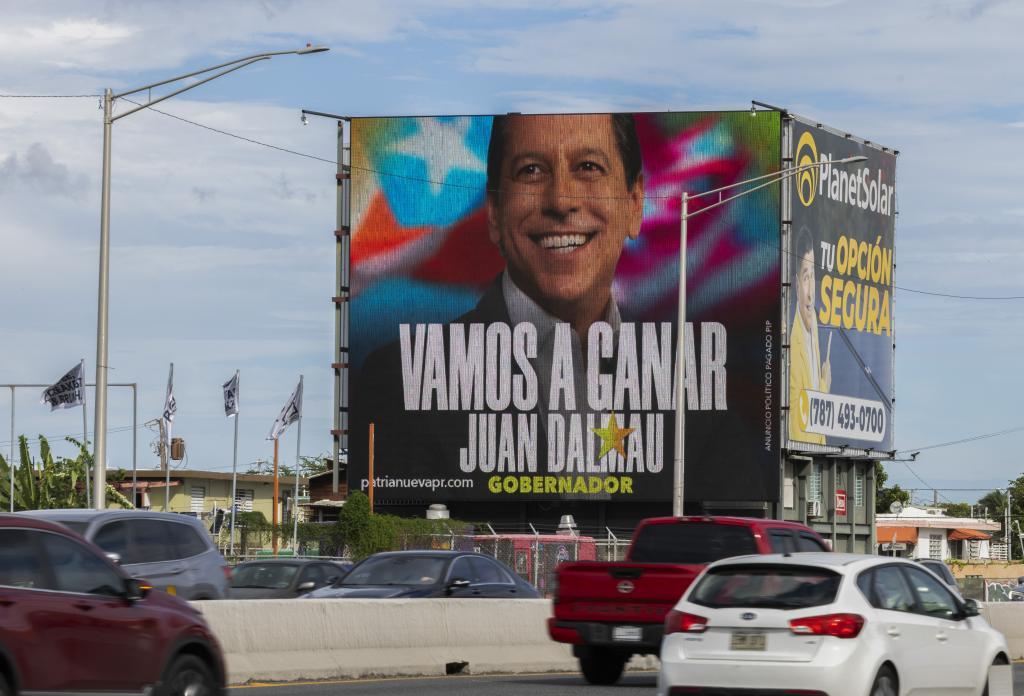Puerto Rico is holding elections that will be historic regardless of which of the top two gubernatorial candidates wins.
If Jenniffer González of the pro-statehood New Progressive Party wins Tuesday's election, it will mark the first time in the island's history that the party secures three consecutive terms.
If Juan Dalmau, who is running for Puerto Rico's Independence Party and Citizen Victory Movement, wins, it will be the first win for a candidate not representing either of the two main parties that have dominated the island's politics for decades.
Trailing González and Dalmau in polls is Jesús Manuel Ortiz of the Popular Democratic Party, which supports the island's territorial status. Also running is Javier Jiménez of Project Dignity, a conservative party created in 2019.
For decades, the New Progressive Party and the Popular Democratic Party would receive at least 90% of all votes, but that began to change in 2016, with newer parties attracting more voters amid economic and political turmoil.
"That has been a very big change," said Jorge Schmidt Nieto, a political analyst and university professor.
Results are not expected late Tuesday, with analysts warning it might be a couple of days before that happens. During the 2020 elections, it took officials four days to release preliminary results.
Puerto Rico's State Elections Commission is still counting more than 220,000 early and absentee votes it received, with officials from various political parties noting the process is slow-going. The counting of those votes began more than two weeks later than usual.
Jessika Padilla, the commission's alternate president, said in a press conference that some 40% of those votes had been counted as of Monday.
"This validation process is one that we are not going to take lightly," she said.
More than 5,000 inmates out of some 7,400 total in Puerto Rico also have voted, although it's unclear how many of those votes have been counted.
The commission and other officials also are still receiving allegations about electoral crimes, including from people who said they received confirmations for early voting when they made no such request.
Meanwhile, energy generators have been dispatched to more than two dozen polling stations to guarantee electricity given the chronic power outages that have plagued Puerto Rico in recent years.
On Tuesday, voters also will be asked for a seventh time about Puerto Rico's political status. The nonbinding referendum offers three options: statehood, independence and independence with free association, under which issues like foreign affairs, U.S. citizenship and use of the U.S. dollar would be negotiated.
Regardless of the outcome, a change in status requires approval from the U.S. Congress.
In addition, Puerto Ricans on Tuesday can support Kamala Harris or Donald Trump in a symbolic vote if they wish. While Puerto Ricans are U.S. citizens, those on the island are not allowed to vote in U.S. presidential elections.
Nearly 2 million voters are eligible to participate in Tuesday's election, although it remains to be seen how many people will do so. Voter apathy has dominated recent elections.
